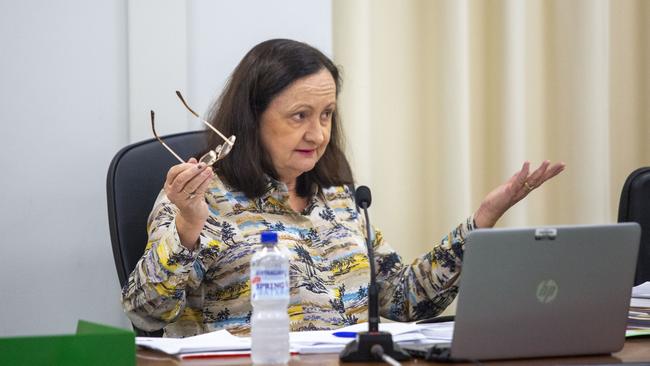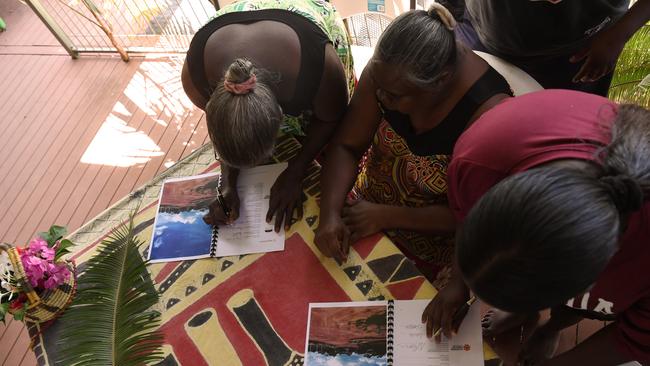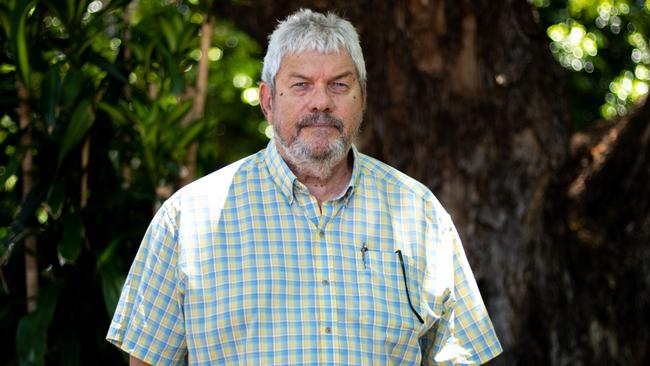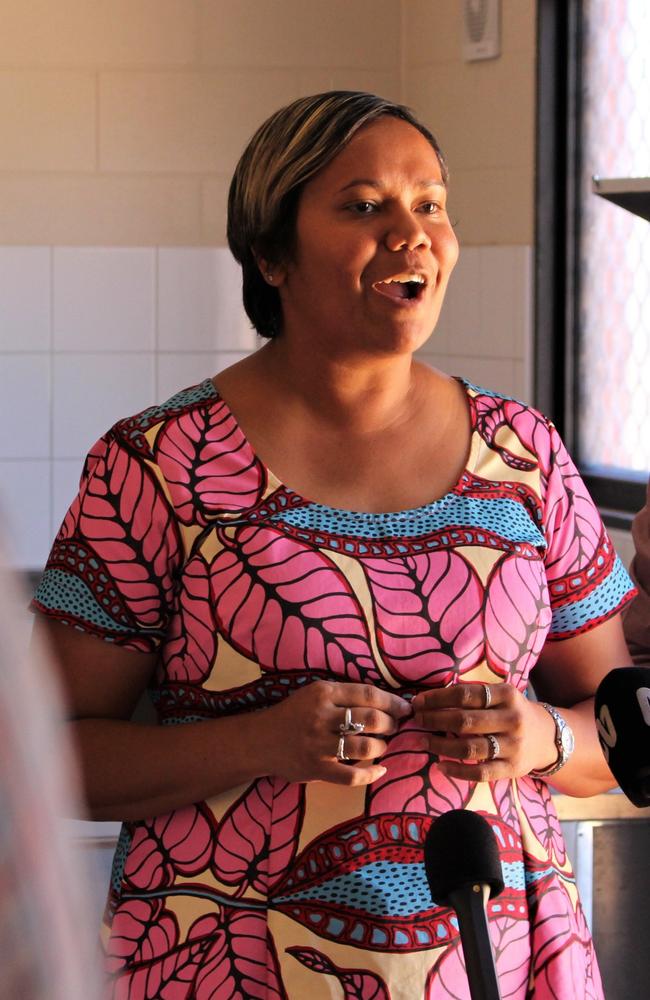Local Decision Making inquiry accused of ‘stacking’ to omit ‘politically unpalatable points‘
Independent MLA Robyn Lambley has dismissed a government review of Local Decision Making agreements as little more than ‘handshakes, backslapping and photo opportunities’.
News
Don't miss out on the headlines from News. Followed categories will be added to My News.
A Territory MLA has slammed a framework meant to empower bush communities across the NT as a political “circus” while accusing the government of censoring a two-year inquiry.
It comes after parliament’s Public Accounts Committee released a report into Local Decision Making Frameworks, a 10-year plan to transfer government service delivery to Aboriginal communities.
The report concluded that while there was “overwhelming support” for the program and its principles, “the LDM Framework can be improved and implemented in a more effective manner”.
It found there was “considerable confusion” about the scheme — even within the 11 communities with active LDM agreements.
The Committee made eight recommendations to improve LDM agreements, including more clarity, transparency and funding, as well as better engagement with communities, councils and the federal government.
However independent MLA Robyn Lambley released her own scathing indictment of the committee process, claiming Labor had stacked the oversight body to omit “politically unpalatable points”.
In her dissenting report, Ms Lambley said the committee did not represent the anger and disappointment of the communities with the scheme.

The Araluen representative said Labor had reduced the number of members from six to five, thus giving them a majority and “absolute control” over the final report.
“It is strange to read a report of an investigation or inquiry that refers to ‘facts’ reports and people that were technically never a part of the investigation,” she said.
She said this was a violation of the “spirit” of parliamentary democracy, with the main purpose of the Public Accounts Committee being to scrutinise government.
Ms Lambley accused the scheme of becoming “politicised” without clear implementation plans or outcomes, disagreements between stakeholders on effective models, inequity in the rollout, under resourcing and a lack of genuine consultation.
“(Community members) saw they had entered an agreement in good faith, yet the government had let them down by not delivering on funding and resources,” she said.
“There seems to be a lot of handshakes, backslapping and photo opportunities, but not much action on the ground.
“The money from the NT government was not flowing, just empty promises.”
Ms Lambley said the LDMs were seen as yet another “sideshow or a circus rolling into town”, in the long history of Aboriginal people being used as “political pawns”.

Ms Lambley was also critical of the “inexplicable” low rate of productivity by the Public Accounts Committee under the 14th parliament, with the two-year long process costing up to $100,000 a year.
During the inquiry, the government itself acknowledged the signing of LDMs did not change bureaucratic practices.
“The reality is that many agencies have simply ‘rebadged’ their consultation or engagement models with LDM without actually changing the way they operate,” an NT government submission said.
Disillusionment with LDMs led the Aboriginal Peak Organisations Northern Territory to stop engaging with the scheme.
Chairman John Paterson told the committee in February that APONT withdrew “due to fatigue, from policies that don’t live up to the promise of real change or reform and loss of confidence and trust in the process”.
“Local community mob keep saying to me that they don’t have a sense of decision-making,” Dr Paterson said.

“Bureaucrats are coming in and telling them this thing and that thing, explaining it and having a bit of a yarn and then jump on their planes and motor car and leave.
“They do not have a sense of being valued by anybody at the best of times — no jobs, lack of kids going to school.
“We have to change that, we cannot sit on our hands and continue to allow the same old, same old because it has not worked.”
Dr Paterson said APONT felt there was a lack of responsiveness from the NT government and “the principles of co-design, communication and collaboration were not being upheld”.
He said after APONT withdrew in July 2019 the government cancelled its funding for the Aboriginal Governance and Management Program, which supports community organisations through mentoring, training and advice to build self-determination and leadership.

Treaty and Local Decision Making Minister Selena Uibo said the government was committed to return decision making power back to the bush — with 11 active LDM agreements and 22 more in development.
Ms Uibo said many of Ms Lambley’s criticisms were raised in the committee’s report and recommendations.
“These issues reflect the complex nature of the work being undertaken through LDM,” she said.
“The PAC inquiry’s report outlines eight recommendations which government will provide a response to and will inform the review that will be undertaken in partnership with APONT,”
Despite releasing the 106 page investigation, the government said it was still reviewing the scheme with a different report in collaboration with APONT yet to be released.
More Coverage
Originally published as Local Decision Making inquiry accused of ‘stacking’ to omit ‘politically unpalatable points‘





